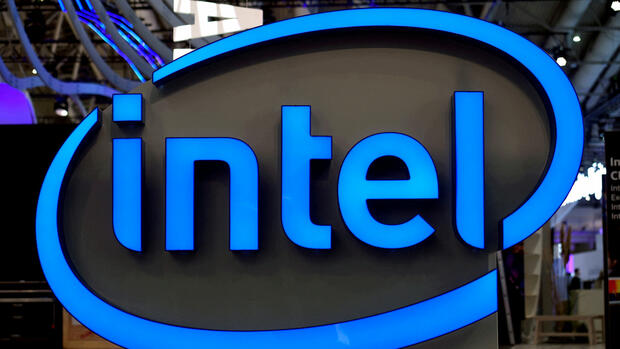Recently, ten instead of the originally promised 6.8 billion euros for the new chip factory were under discussion.
(Photo: Reuters)
Berlin The US chip group Intel and the federal government finally agreed on an increase in state funds for the planned chip factory in Magdeburg during negotiations in the Federal Chancellery on Monday. The company is to receive 9.9 billion euros instead of the previously promised 6.8 billion euros. Two government representatives confirmed this to the Handelsblatt.
In return, Intel agrees to invest significantly more in Magdeburg. Instead of the originally planned 17 billion, the investment sum is now to be more than 30 billion euros, said one of the government representatives. Ultimately, the relative share of funding has fallen: Originally, the government would have contributed 40 percent of the investment volume. Now it’s less than 33 percent.
In addition, Intel has made promises to use the most modern possible chip technology there. It will result in the next generation of the so-called EUV systems from the Dutch manufacturer ASML. The corresponding machines will cost several hundred million euros each and should be available from the middle of the decade. EUV stands for “extreme ultraviolet light” with which the semiconductors are exposed. These are used for the latest smartphones and computers.
The Handelsblatt had already reported on these basic features of the agreement last Thursday. The agreement is again a declaration of intent, according to government circles. Before the final funding decision can be made, the EU Commission must first give the green light. “Theoretically, the amount of the subsidy can then be collected again,” said a government representative. There have already been initial informal discussions with the EU Commission, but they are still “very vague”.
The federal government has invited to a photo session on Monday afternoon to mark the signing of an agreement in the presence of Chancellor Olaf Scholz (SPD) and Intel boss Pat Gelsinger.
Ministry of Economics had been negotiating for months
In particular, Economics Minister Robert Habeck (Greens) and his officials have recently worked intensively to enable the higher subsidies and to convince Intel to settle in Saxony-Anhalt, according to government circles. The Intel location in Magdeburg is of great importance for the transformation and technological sovereignty.
Finance Minister Christian Lindner (FDP), on the other hand, had slowed down and repeatedly emphasized in the past few months that he would reject higher subsidies for Intel. Only last weekend he explained in an interview: “There is no more money in the household.”
The dispute has now been resolved because the additional funds for Intel are not being financed from the federal budget. Instead, a special fund from the area of responsibility of Economics Minister Habeck should be used. According to reports, this is the Climate and Transformation Fund (KTF).
This does not place an additional burden on budget planning, which the traffic light has been arguing about for some time anyway. The Ministry of Economic Affairs recently tried to reduce the cost gap for Intel in other ways, according to government circles. Those responsible held talks with energy suppliers, for example. With cheaper electricity, the settlement in Magdeburg could become more attractive for Intel.
Intel had already postponed the start of construction in Saxony-Anhalt from the first half of 2023 to 2024. The group currently expects production to start in 2027 or 2028.
Intel has already hired its first employees and acquired the property in Magdeburg. Archaeologists are currently working there, exploring tombs and remains of Neolithic houses. The state of Saxony-Anhalt had already promised its funding.
More: Crazy subsidies for Intel’s chip factory – a comment
